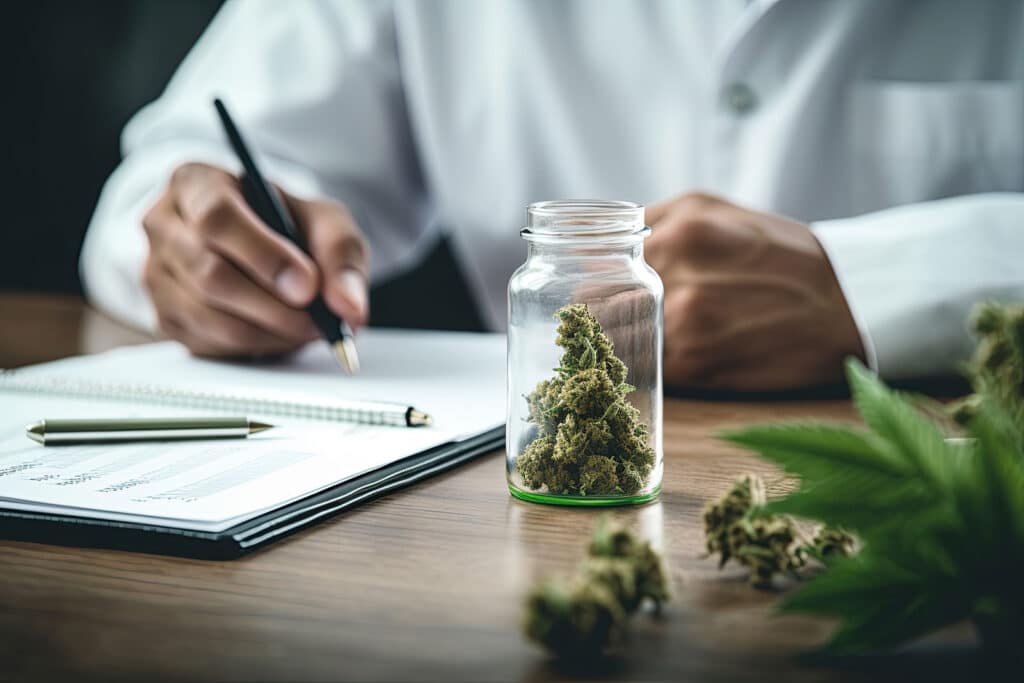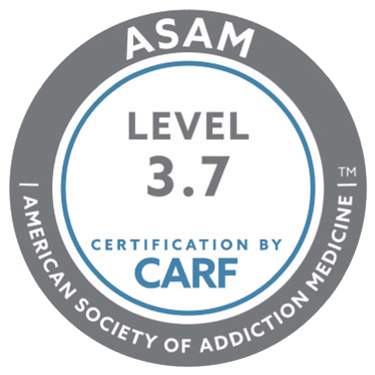There are plenty of mixed messages about marijuana in our societies. This leaves many people under the impression that the drug is benign, especially compared to substances like meth.
However, the science and statistics are clear: Marijuana use disorder is real.
The number of people suffering from this disease in the US alone is to the tune of 19 million.
But if rehab programs can help people suffering from meth, alcohol, and opioid addictions, they should be able to deal with cannabis use disorders as well.
Read on to find out all about marijuana addiction treatment. This guide covers everything from the science behind the disorder to the barriers that keep people from seeking help.
What Makes Increasingly Marijuana Addictive?
Despite ongoing debates about the drug’s classification, marijuana/cannabis is still considered a Schedule 1 controlled substance. Yes, it’s right up there with ecstasy, LSD, and heroin!

Why is it considered this serious?
Well, cannabis plants contain hundreds of chemicals, but delta-9 THC is the main psychoactive (mind-altering) one.
Regardless of how a person consumes THC (inhalation or ingestion), it’ll eventually activate the cannabinoid receptors, and we have a lot of those in our brains. From there, you get all the effects on memory, concentration, coordination, time perception, and senses.
After a while, the brain might adapt to the high THC levels. This is where dependency comes from, exposing the person to withdrawals when they quit abruptly. Left long enough, dependency can lead to full-blown addiction.
Of course, it’s possible to be dependent without being addicted. Yet, many studies use the criteria for dependence to define marijuana addiction and use disorders.
Some sources estimate that around 9% of all those who experiment with the drug end up dependent/addicted. Other researchers believe the number is more like 30%.
The estimate goes even higher (more than 40%) among heavy users.
Unfortunately, cannabis strains are becoming more potent these days, making the drug even more dangerous. After all, the higher THC levels present in the drug, the greater the risk of dependency.
Who Needs Treatment For Cannabis Use Disorders?
There are self-assessments out there, but only healthcare professionals can really diagnose cannabis use disorders (CUDs). More often than not, they’ll rely on diagnostic criteria from recognized guidelines like the DSM-5.

The DSM-5 lists 11 main symptoms, ranging from cravings to repeated attempts to stop marijuana use.
However, having one symptom from the list doesn’t mean that the person is addicted and needs treatment.
Even a mild case will exhibit two or three symptoms. Meeting four or five warning signs pushes the diagnosis to moderate.
Meanwhile, the healthcare professional will only diagnose a severe CUD if they spot six or more symptoms. The more complex the case, the more likely the patient will need a residential treatment program.
The good news is that the SAMHSA’s National Survey on Drug Use and Health found that more than half (55.1%) of the 19 million marijuana use disorder cases in 2022 were mild. Only 17.3% were considered severe.
The bad news, however, is that young adults are at a higher risk. Here’s how the SAMHSA broke down the at-risk groups:
| Age Group | Number of Cases (2022) | Diagnosis Percentage Within the Group |
| 12–17 | 1.3 million | 5.1% |
| 18–25 | 5.7 million | 16.5% |
| 26+ | 11.9 million | 5.4% |
But even with the statistics and diagnosis insights, it’s hard to figure out the case severity on your own. If you need help, don’t hesitate to reach out.
What Are the Treatment Options for Marijuana Addiction?
Rehab options for marijuana use disorders aren’t all different from protocols designed for alcoholism and other drug addictions.
The exact program will be personalized, but it’s often a blend of more than one evidence-based therapy in an outpatient setting.
Cognitive Behavioral Therapy (CBT)
CBT is a well-studied form of psychotherapy that focuses on identifying and correcting problematic behaviors. The end goal is to work on self-control and disrupt negative thought patterns.

Some experts believe it’s a good option for motivated patients but not ideal for ambivalent patients.
Motivational Enhancement Therapy (MET)
METs (not to be confused with opioid MATs or Medication-Assisted Treatments) work for ambivalent patients, especially early on in the treatment.
This intervention doesn’t focus on treating the addiction itself. Instead, it just works on the patient’s internal motivation in a non-confrontational way.
Generally speaking, motivational interviewing and CBT treatments have similar efficacies in treating CUDs. But they can also be used together in some programs.
Contingency Management (CM)
CM therapeutic approaches rely on more tangible rewards. Think vouchers and gift cards.
It might sound too simple, but it helps reinforce positive behaviors, which goes a long way in a patient’s recovery journey.
In fact, adding CM to MET and CBT programs can make the treatment significantly more effective. One study even showed that vouchers improved the abstinence rates (from 10% to 35%).
Psychosocial Programs
Aside from the three main therapies, the program could include psychosocial treatments, like counseling, family-based therapy, and mindfulness.
Medications
So far, there are no FDA-approved drugs that work specifically for treating marijuana use disorders.

There’s active and promising research, though.
Researchers are looking into an experimental drug called AEF0117. Supposedly, AEF0117 will be able to counteract the “high” of THC without disrupting normal brain functions.
For now, the medications in the programs are limited to symptomatic treatment. So, if a patient in recovery suffers from sleep problems (common in marijuana withdrawals), the healthcare professional might prescribe sleep aids like zolpidem.
However, incorporating pharmacological treatments isn’t always easy with marijuana use disorders. The safety and efficacy of many off-label uses are still unclear. That’s why the treating team has to consider the benefits and risks before personalizing the treatment program.
Do Marijuana Addiction Treatment Programs Actually Work?
It’s not clear what the success rates of the different treatment programs are.
What we do know is that recovery is, in fact, possible. Around 2.4 million Americans managed to resolve a significant marijuana problem.
Sure, some people can kick off their dependency without treatment-assisted programs. Yet, the majority (79.1%) of recovered people recommend seeking professional treatment.
Natural recovery without attending a program? Around 53% recommend it.
Overall, professional treatments are recommended because they can help get long-term users through the withdrawals that appear during the first few days of abstinence.
What Does Marijuana Withdrawals Look Like?

Most withdrawal symptoms around 1–2 days after quitting, and they can include:
- Insomnia
- Irritability
- Anxiety
- Decreased appetite
- Abdominal pain
- Headache
- Chills and tremors
The withdrawals peak within the first week and last 2–5 weeks. If the symptoms become too intense to manage at any point, the patient might end up relapsing.
Why Don’t More People Seek Help?
While it’s possible to resolve a marijuana problem with professional help, hardly enough people are getting treated.
Some reports estimate that only 13% of people diagnosed with a CUD seek treatment!
The reason someone might be reluctant to enter a treatment program usually falls within one of the following categories:
- Logistical barriers (cost-related difficulties, lack of nearby facilities, etc.)
- Lack of motivation or awareness of the treatment options
- Low-perceived need (the patient thinks they have the problem under control)
- Social stigma
Experts believe that the third reason is the most prominent issue with people suffering from marijuana use disorders.
Then again, this lack of perceived need makes sense when you consider how the mainstream perception is that cannabis products are relatively benign. Reports show more than 70% of Americans believe marijuana is considered less risky than both alcohol and tobacco.
Hopefully, the increasing awareness about the nature of cannabis dependence will help bridge the gap between the admission rates and the actual treatment need.

Admissions Stats to Marijuana Addiction Treatment Programs
From the current and previous admissions, we could draw some insights about the treatment programs.
Here are some stats based on the SAMHSA Treatment Episode Data Set (TEDS) for 2021 and 2019:
- In 2019, the average admission age was 28 years.
- Only 2% of marijuana admissions in 2019 received detox services.
- More than 100,000 of the 2019 admissions were referred by a legal entity.
- In 2021, marijuana-related cases took up 10.2% of all admissions to substance use treatment services and 9.7% of the discharges.
- Florida had 5,122 marijuana admissions in 2021, while the counts in New York and New Jersey were 16,242 and 6,377, respectively.
Final Thoughts
As cannabis strains become more accessible and more potent than ever, addiction and dependency rates are only expected to soar.
The treatment and awareness programs are trying to keep up, but the journey has to start with the patient. Getting admitted to a rehab program is the first step.
If you or someone you love is suffering from a marijuana use disorder, don’t hesitate to seek treatment.
Our team at Recreate Behavioral Health Network is always ready to answer your questions.







